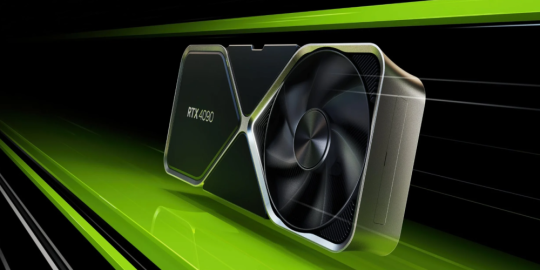
The technology landscape is witnessing a formidable shift, thanks to the remarkable rise of Nvidia, a company that originally designed GPUs for gamers but has now found its hardware at the crux of AI advancements. Much like Amazon Web Services (AWS) capitalized on the booming demand for cloud infrastructure, Nvidia's serendipitous discovery of its GPUs' capacity to handle AI workloads has spurred incomparable growth in its revenue, particularly from its data center business. This has ignited conversations about Nvidia's future as a possible cloud titan, with its recent financial figures echoing a success story reminiscent of AWS's early days.
Nvidia's ascent in the tech world isn't merely attributed to extraordinary circumstances but also to its strategic positioning at the intersection of AI's exponential rise. With GPUs becoming the backbone of processing cumbersome AI algorithms, the company's financial reports showcase a dazzling increase in revenue - a leap from $7.1 billion to a staggering $22.1 billion over a single fiscal year. This monumental growth is primarily attributed to Nvidia's data center business, which outshines its other ventures by a significant margin.
While AWS took its time to build up market dominance, Nvidia's remarkable financial growth, outpacing the steady increase AWS enjoyed, signals a company rapidly approaching the zenith of its market potential. Nonetheless, like AWS, which now contends with behemoths such as Microsoft Azure and Google Cloud, Nvidia must also brace for emerging competition from other chipmakers eager to carve out their share of the profitable AI and cloud computing markets.
In spite of looming competition, Nvidia zealously projects continued expansion, expecting to surpass $100 billion in annual revenue. This forecast is buoyed by significant year-over-year growth, although analysts cautiously note that these extraordinary percentages are likely to normalize as the company matures. Still, even with moderated predictions, Nvidia's short-to-medium-term outlook paints a picture of a company ascending towards becoming an essential fixture in the technology sector, bolstering its cloud and AI-related credentials.
Amidst the electrifying data and optimistic forecasts, the tech industry finds itself pondering whether Nvidia can maintain this blistering pace and emerge as the new cloud leviathan, a role AWS has conducted with much aplomb. As Nvidia navigates the competitive landscape and the inevitable plateauing that accompanies large revenue figures, it remains to be seen how the company will adapt and innovate to sustain growth. Nevertheless, the prospect of Nvidia transforming into a cloud powerhouse is not just a possibility but a burgeoning reality as it continues to capitalize on its unforeseen yet certainly fortuitous pivot into the artificial intelligence and cloud computing arenas.